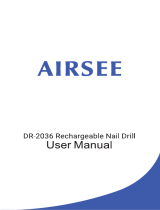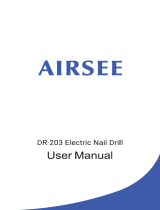
9
SAFETY
Safety Labels and Locations
Battery Caution
CAUTION
• Do not drive through water above the floor of the vehicle. Battery damage will occur.
• Batteries require regular maintenance.
• Failure to maintain batteries in accordance with the owners manual can result in battery damage,
vehicle malfunction, fire and/or severe injury or death.
• Max towing speed 10 MPH (16 km/h) - drivetrain damage will occur if towed faster than 10 MPH (16
km/h).
• Set parking brake before leaving vehicle.
• Turn Power On key to “Off” position and remove when not in use.
• When towing vehicle, turn Power On key to “Off” position.
7180693
Battery Charging Warning
WARNING
• Explosive gases are released when batteries are charged. Keep sparks,
flames and cigarettes away. Shield eyes when working near batteries.
• Do not charge batteries in a non-ventilated enclosed area or near
flammable materials.
• Do not attempt to charge frozen, leaking, or damaged batteries.
• Connect battery charger to properly rated electrical receptacle with GFCI.
• Do not charge with storage or weather cover on vehicle or with the cab
enclosure doors closed, as fire and explosion are possible.
• Refer to Owner’s Manual or contact your local dealer with any questions.
TO MAXIMIZE BATTERY LIFE
• Always check and maintain water level monthly. Use only distilled water. Water level should be kept 1/
4” (6 mm) below fill well. Do not overfill the battery.
• Always keep batteries fully charged. For maximum life, charge your vehicle at every opportunity. Use
only the charger supplied with the vehicle. Inspect battery connections regularly.
• Failure to properly maintain your batteries will void warranty coverage.
7176414
Battery Compartment Warning
WARNING
• SULFURIC ACID in batteries will burn skin, eyes, and clothing.
Always wear eye protection and proper clothing. Do not tip batteries.
Keep vent caps tight and level. In event of injury, flush with water and
call physician immediately.
• HIGH VOLTAGE CABLES and terminals are contained within this
compartment. Improper contact between battery terminals can result
in electrical shorts. ELECTRICAL SHORTS can result in burns.
• Do not use high pressure water to wash the battery compartment.
Damage to the vented batteries will result.
• Tampering with or unauthorized modification of this unit could result
in serious personal injury, will void the warranty, and can result in
permanent damage to the vehicle.
• Refer to your Owner’s Manual or contact your local GEM dealer with
any questions.
7180344
Battery Compartment
Warning





















